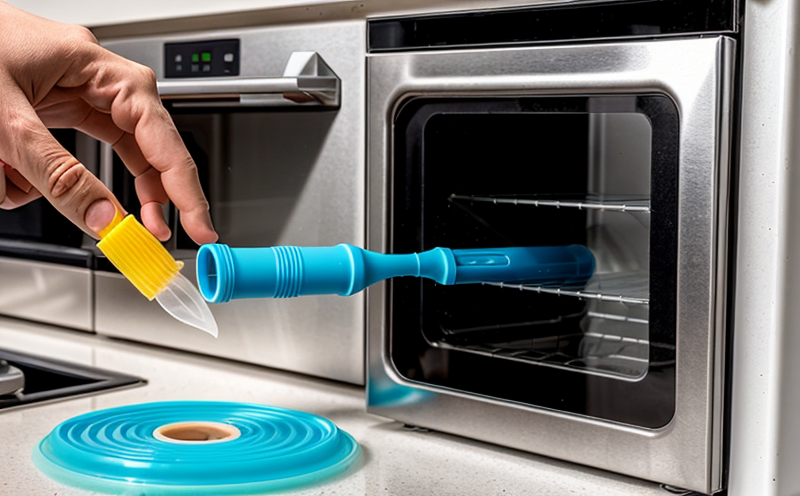ISO 22088 Stress Cracking Resistance Testing of Household Plastics
The ISO 22088 standard provides a method to determine the stress crack resistance (SCR) of household plastics under cyclic load. This testing is crucial for ensuring that products such as kitchen utensils, children's toys, and other domestic items withstand environmental stresses without cracking or breaking.
Stress cracking can be caused by various factors including temperature changes, exposure to solvents or oils, and mechanical stresses during use. Understanding SCR helps manufacturers design more durable products that meet safety standards while also enhancing the overall quality of life for consumers.
The testing process involves subjecting a specimen cut from the plastic part of interest to alternating stress cycles in a controlled environment until cracking occurs. Specimen preparation requires careful selection based on the type and thickness of the plastic being tested, ensuring it accurately represents the product under scrutiny.
Instrumentation used for this test typically includes universal testing machines capable of applying precise cyclic loads along with environmental chambers that can simulate different temperature conditions. Compliance officers involved in quality management will find this service invaluable as they ensure their products adhere to international standards like ISO 22088, thereby maintaining consistent product performance across diverse environments.
For R&D engineers working on new formulations or designs for household plastics, stress cracking resistance testing provides critical insights into material selection and processing parameters. By identifying weak points early in the development cycle, they can make informed decisions about improving both functionality and longevity of their products.
Procurement teams benefit from knowing which suppliers offer materials that meet stringent SCR criteria since this impacts long-term reliability and customer satisfaction. They can leverage the results obtained through ISO 22088 testing when negotiating contracts with vendors to ensure they receive high-quality components.
In summary, stress cracking resistance testing according to ISO 22088 is essential for producing reliable household plastic products that stand up well under real-world conditions. It supports quality management practices by helping organizations comply with relevant regulations and improve product durability.
Benefits
- Ensures compliance with international standards (ISO 22088).
- Enhances the durability of household plastic products against environmental stresses.
- Aids in identifying weak points early during product development cycles.
- Supports quality management by ensuring adherence to regulatory requirements.
- Improves long-term reliability and customer satisfaction through enhanced product performance.
International Acceptance and Recognition
- The ISO 22088 standard is widely accepted in countries around the world, including those participating in global trade agreements.
- Compliance with this test method is often a prerequisite for certification by leading third-party auditors.
Given its broad acceptance and recognition, adherence to ISO 22088 can significantly enhance a company’s reputation among consumers who value product quality and safety. It also opens doors to international markets where stringent regulatory requirements apply.
Environmental and Sustainability Contributions
The results of stress cracking resistance testing contribute positively towards sustainable practices by promoting the use of more durable materials that last longer in everyday applications. This reduces waste generation associated with frequent replacements due to premature failure.
Furthermore, by ensuring that household plastics meet strict SCR standards, companies can minimize their environmental footprint through reduced resource consumption and energy usage throughout product lifecycles. Such efforts align closely with broader sustainability goals within the industry.





